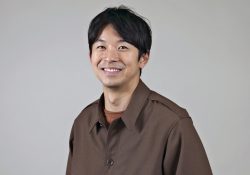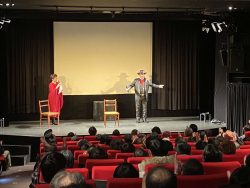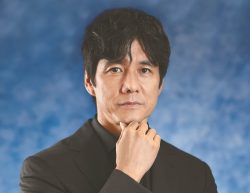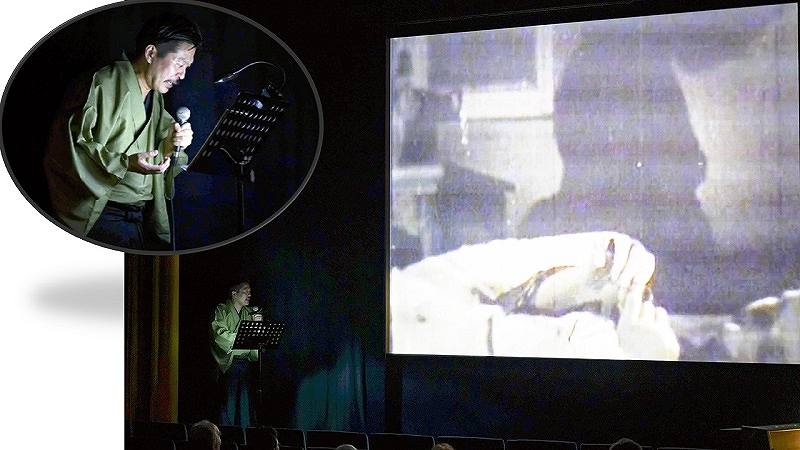
Ichiro Kataoka performs in Germany.
11:15 JST, December 15, 2022
Katsudo benshi, or film narrators, practice a unique form of Japanese film culture born at the end of the 19th century that is still alive and kicking in the 21st century. In fact, some film narrators have even expanded overseas.
Although opportunities for the colloquially termed “katsuben” have declined, they are still regularly invited to silent film viewing parties and are featured at film festivals.
The profession of katsudo benshi was born in 1896, when movies first appeared in Japan. During the screening of silent films, katsuben narrate dialogue and scenes from beside the screen. At the time, many audiences flocked to see star katsuben, who had distinctive personalities and delivered engaging narratives, but their numbers declined sharply after the introduction of “talkies” in the 1930s.
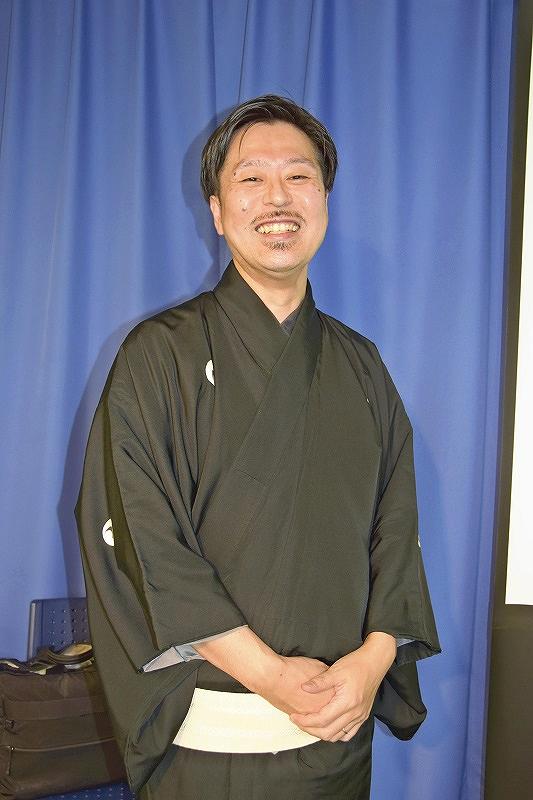
Ichiro Kataoka, katsudo benshi
Ichiro Kataoka, 45, was drawn into the world of katsuben when he saw a performance by famous katsudo benshi, Midori Sawato, when he was preparing for a university entrance examination. Kataoka had been interested in storytelling arts such as rakugo and kodan, but he thought katsuben was a comprehensive art form, as there are visual images, music and even a literary element since they write the scripts.
In 2002, after graduating from university, Kataoka became Sawato’s apprentice. In 2007, while continuing his training, Kataoka was invited to speak as a katsuben at a film festival in Croatia that featured Japanese horror films.
The film shown at the event was “A Page of Madness” (1926), directed by Teinosuke Kinugasa. The film was popular in Europe and the United States, and the audience listened attentively to Kataoka’s live Japanese storytelling and enjoyed the film. Since then, he has performed abroad once or twice a year. During extended stays in Germany and the United States, he even toured around each country.
While Kataoka screens samurai dramas at his performances, films by Yasujiro Ozu, such as “Dekigokoro (Passing Fancy)” (1933), are popular among overseas fans of Japanese cinema. Although the scripts are provided to the audience in advance and the films are subtitled in English and the local language, Kataoka says, “Even if they don’t understand the language, they can feel the emotions through the voice of the katsudo benshi,” and he is satisfied with the response.
There used to be movie storytellers in the West, but they have all disappeared. On the other hand, Japanese katsuben, which has become a unique Japanese storytelling art that uses different tones of voice for men and women of all ages, has been highly acclaimed and is gaining popularity as a live performance different from typical narration. Kataoka feels “it is seen as a new way of enjoying the old medium of silent films.”
Due to the coronavirus pandemic, Kataoka suspended his overseas tour. This September, he toured Germany and Lithuania for the first time in three years. He has now visited more than 20 countries in Europe, the U.S. and Asia, and is scheduled to perform in Belgium and Germany this month. In 2024, he is scheduled to visit seven locations in the United States.
Kataoka said, “I want to convey the appeal of katsuben not only by transmitting Japanese culture, but also through accompaniment by local musicians and workshops with the audience.”
Top Articles in Culture
-

BTS to Hold Comeback Concert in Seoul on March 21; Popular Boy Band Releases New Album to Signal Return
-

Lifestyle at Kyoto Traditional Machiya Townhouse to Be Showcased in Documentary
-

‘Jujutsu Kaisen’ Voice Actor Junya Enoki Discusses Rapid Action Scenes in Season 3, Airing Now
-
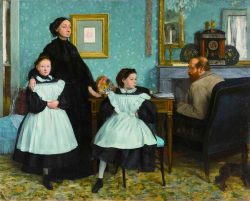
Tokyo Exhibition Offers Inside Look at Impressionism; 70 of 100 Works on ‘Interiors’ by Monet, Others on Loan from Paris
-
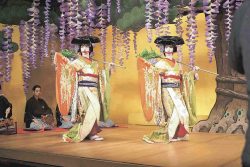
Japanese Film ‘Kokuho’ Receives Oscar Nod in Makeup, Hairstyling Category; Makeup Artist Kazu Hiro Also Nominated
JN ACCESS RANKING
-

Japan Institute to Use Domestic Commercial Optical Lattice Clock to Set Japan Standard Time
-

Israeli Ambassador to Japan Speaks about Japan’s Role in the Reconstruction of Gaza
-

Man Infected with Measles May Have Come in Contact with Many People in Tokyo, Went to Store, Restaurant Around When Symptoms Emerged
-

Prudential Life Insurance Plans to Fully Compensate for Damages Caused by Fraudulent Actions Without Waiting for Third-Party Committee Review
-

Woman with Measles Visited Hospital in Tokyo Multiple Times Before Being Diagnosed with Disease


